In a previous post, I wrote about Professor Robert Wallace, (1853 – 1939), who taught Scientific Agriculture and Rural Economy at the University of Edinburgh and how many of the glass slides in the Roslin Collection seem to belong to him. While many of these images focused on his teaching interests, there were quite a few on World War I concerns. Professor Wallace was passionately concerned about the treatment of war prisoners and hostages in Germany and Belgium during the war and wrote to the President of the United States of America, Woodrow Wilson between 1914 and 1917 with his concerns and urging him to send American troops to Europe to fight. These letters can beound in the Centre for Research Collections, Main Library, University of Edinburgh (Reference number: GB 237 GB 237 Coll-87 / Location Gen. 554-555; Gen. 867F).
Here are a selection of images from the Roslin Glass Slides Collection featuring – animals during and after WWI and political cartoons:

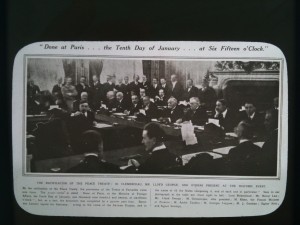
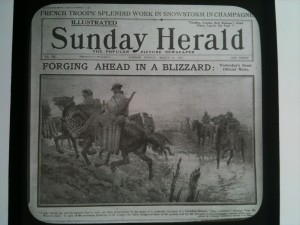
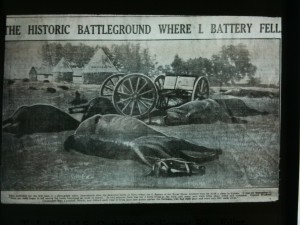
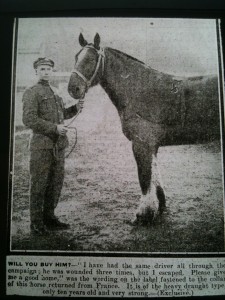
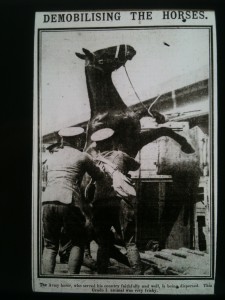
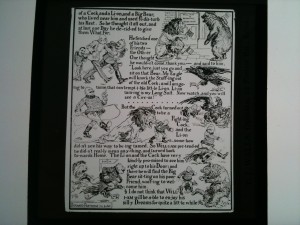
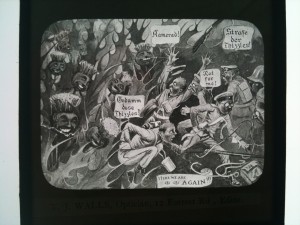
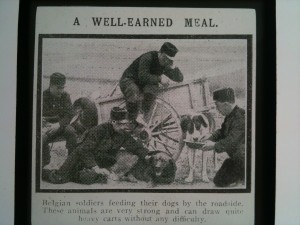
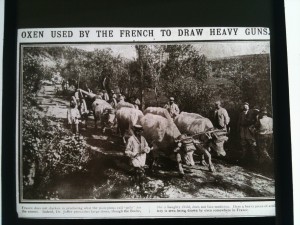
I’m thoroughly enjoying following this blog! (By the way, I can only get the last three images to expand in size.) I was wondering if you were planning on looking at the work conducted by Wallace et al. during the Great War? I’m currently researching what a small part of the Board of Agriculture got up to (which was really quite adventurous) on seed testing and so on. We need more boots on the ground though, so any other research currently being done would be exceptionally interesting to me. I should really contact you properly some time, but this will do for now. Cheers!
Dear Dominic,
Thank you for your comment and I’m pleased to hear that you’re enjoying the blog! I’ve fixed the images so they should all expand in size; however, some of them, looking fine when not-expanded, flip when they are, so sorry about that, but I hope you can see them better. As for looking at the work conducted by Wallace et al. during the Great War, well, the purpose of this project is to just catalogue the material and make it available to researchers and so Darbyshire and FAE Crew and others papers though we may find some more interesting war stories as time goes on. You are more than welcome to contact us and make an appointment with us to come see these scientists work during the Great War to further your reesarch.
Best,
Kristy